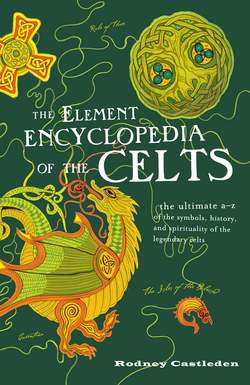Читать книгу The Element Encyclopedia of the Celts - Rodney Castleden - Страница 152
FUNERAL ODES
ОглавлениеOne of the duties of a Celtic bard was to write a funeral ode on the death of his king. A fine example has survived, entitled Marwnad Uthyr Pendragon, which can be translated as The Funeral Ode to the Wonderful Pendragon. For a long time this was thought to be the funeral ode for Uther, Arthur’s father, but the word “uter” can be an adjective meaning “terrible” or “wonderful,” while pendragon is a Celtic title for High King or dux bellorum. This means that the ode might have been addressed to Arthur himself:
The longing and lamentation of the multitude
Are unceasing throughout the host.
They earnestly yearn for the joyful prize of blue enamel.
There your stone with your name became a riddle.
They also wish for their Prince.
All around appears the rule of order at the head of the feast.
They seek to dress the head of the feast with black.
They unendingly shed blood among the war-bands,
Longing for you to defend them and give them succour.
The sword that was in the van in taming the brothers of Caw of the Wall.
They crave with longing for a portion of your cause
And for refuge in the manliness of Arthur.
They long for your coming in a hundred fortresses.
A hundred manors long for your assurances.
They long for your coming in a hundred schools.
A hundred chieftains long for your coming:
The great and mighty sword that supported them.
They look for your best judgements of merit,
The restoration of principalities.
Your sayings are remembered, soothing the aggressive.
The eloquence of the bards is not great enough:
Toiling for weeks with the eagerness of beavers,
With the names of men and war-bands to compare you.
Above the eagles, above the fear of disorder,
I am the one who is with the great Warrior.
I am the bard, the bagpiper. I am with the Creator;
Seventy musicians create the great rhapsody of the first power…
The Leader of Heaven has left the nation without a roof.
“Caw of the Wall” seems an odd phrase. The Life of Cadoc tells us that Caw (Cauus) lived in southern Scotland, not far from Hadrian’s Wall; he was the father of Gildas.
In another poem, The Dream of Rhonabwy, Arthur is described as sitting with Gwarthegydd, another son of Caw.
Other evidence confirms that Arthur and Caw were contemporaries, so the ode was written at the right time to have been for Arthur. If it is his eulogy, it tells us a great deal about the way he was regarded at the time of his death. The final image is the most telling of all: “The Leader of Heaven has left the nation without a roof.”
